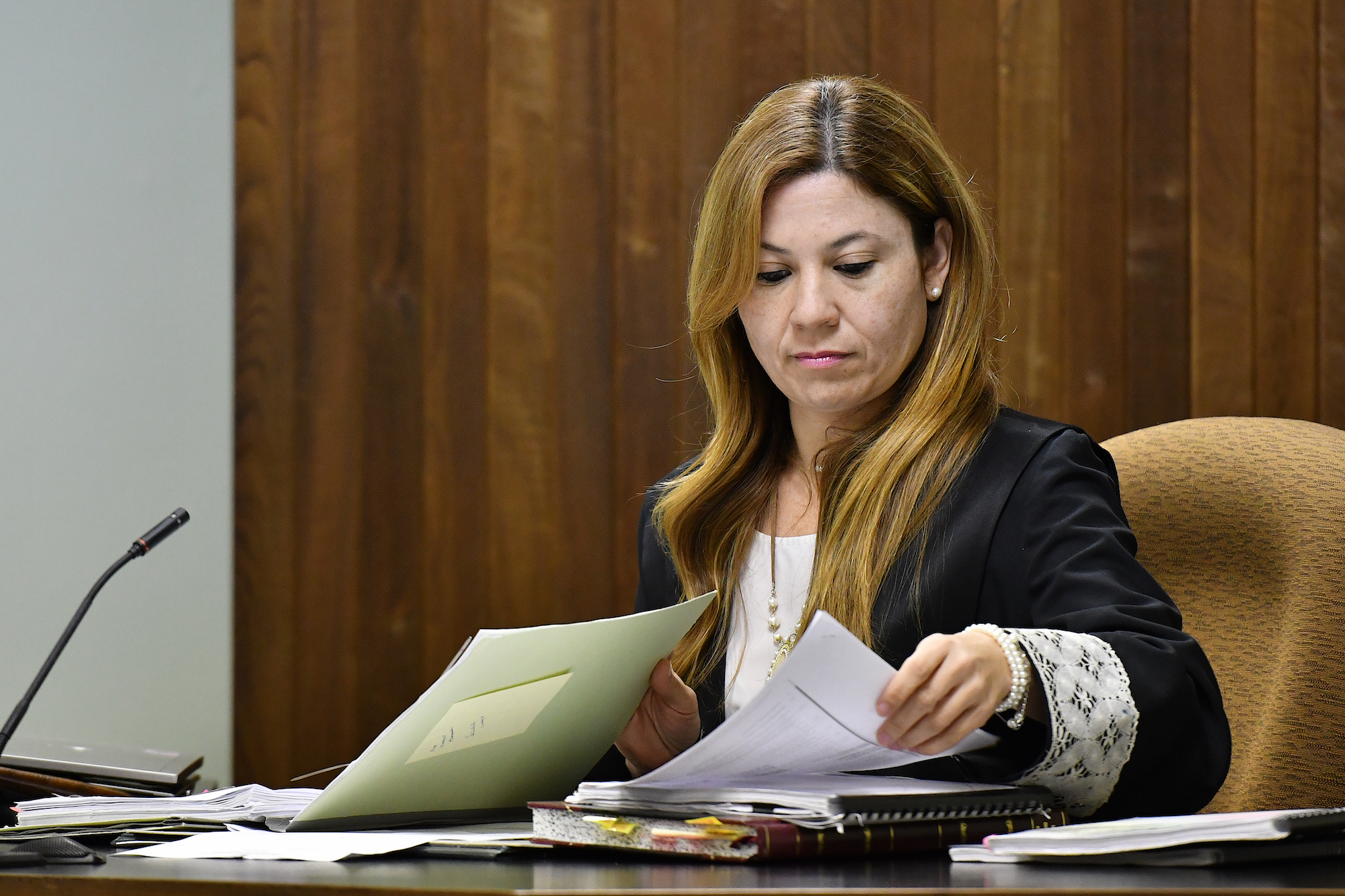A judge in San Juan ruled Tuesday that the government of Puerto Rico has seven days to release requested mortality statistics to the Center for Investigative Journalism (CPI) and CNN, two journalistic organizations who have been reporting about the island’s underreporting of deaths since Hurricane María and had sued the government’s Demographic Registry for access to data.


Superior Judge Lauracelis Roques Arroyo (Photo by Juan Costa | Center for Investigative Journalism)
The 27-page decision by judge Lauracelis Roques Arroyo ordered the following to happen:
The CPI must receive:
- Registered deaths in Puerto Rico from September 18, 2017 to the most recent entry made by the island’s Demographic Registry. This would be delivered as a complete database, categorized by day and by local municipality.
- A copy of all death certificates in Puerto Rico from September 18, 2017 to the present date.
- A copy of all burial requests in Puerto Rico from September 18, 2017 to the present date.
- A copy of all cremation requests in Puerto Rico from September 18, 2017 to the present date.
- Authorization to access the manual register used to record requests to funeral homes and cremation house that is housed in each of the island’s Demographic Registry offices.
- Access to the Demographic Registry database that tracks of causes of death.
CNN must receive:
- A digital database copy used to record death certificates in Puerto Rico, tracking certificates from September 20, 2017 to January, 2018.
- A digital copy of all death certificates in Puerto Rico from September 20, 2017 to January 20, 2018.
“This Court concludes that, with exception to Social Security numbers, the information contained in the death certificates and any additional information is not privileged,” part of the decision read in Spanish. “Therefore, this Court orders that the plaintiffs’ access to death certificates be allowed, as the balance is tipped in favor of the constitutional right of access to information.”
The decision comes just days after the government of Puerto Rico, in response to months of pressure from journalists and researchers, shared its first public release of 2017 mortality statistics since January 4. Those latest numbers, published on June 1, showed that there were 1,244 more deaths in September and October 2017 when compared to the same two months in 2016. Last Tuesday, a Harvard School of Public Health study estimated that the number of excess hurricane-related deaths after Hurricane María from September 20, 2017 to December 31, 2017 was more than 70 times the government’s official’s count of 64.
A December 7 report from the CPI, in collaboration with Latino USA and Latino Rebels, said that nearly 1,000 people died in Puerto Rico the first 40 days after Hurricane María, when compared to the same period in 2016. On September 28, 2017, the CPI filed a story saying that the hurricane-related death toll was being underreported.
Latino Rebels contacted several government officials to get reaction about the judge’s ruling. As of this posting, it has not received a response. (UPDATE BELOW)
“The data of the people who died after Hurricane María has become the best-kept secret by the administration of Ricardo Rossello, who only gave minimal and general information, sometimes wrong information, and instead has been preventing, with the use of public resources, journalists and academics from seeing databases and death certificates. That public policy is a contradiction with its public relations strategy that proclaims transparency,” Carla Minet of the CPI said in a Spanish-language press release about the decision. “We ask Governor Rosselló to finally deliver the information without further excuses.”
The full 27-page decision in Spanish can be accessed here:
UPDATE, June 5, 12:15pmET
The government of Puerto Rico has announced that it will follow the judge’s order:
Authorized statement of the secretary of Public Affairs and Public Policy, Ramón Rosario:
(June 5, 2018 – La Fortaleza, San Juan) “The Government of Puerto Rico complied with what is expressly provided for in the Puerto Rico Demographic Registry Act. However, a Court already determined that both the CPI and CNN are interested parties. The Puerto Rico Demographic Registry Act is clear in that an order of the Court can convert a party into an interested party beyond the requirements established by the Law, which is what happened in this case. Our policy, at the request of Governor Ricardo Rosselló, is to work with strict transparency and facilitate access to all public information, so we will be complying with what was recently ordered by the Court.”
***
Julio Ricardo Varela is founder and publisher of Latino Rebels, part of Futuro Media. He tweets from @julito77.


